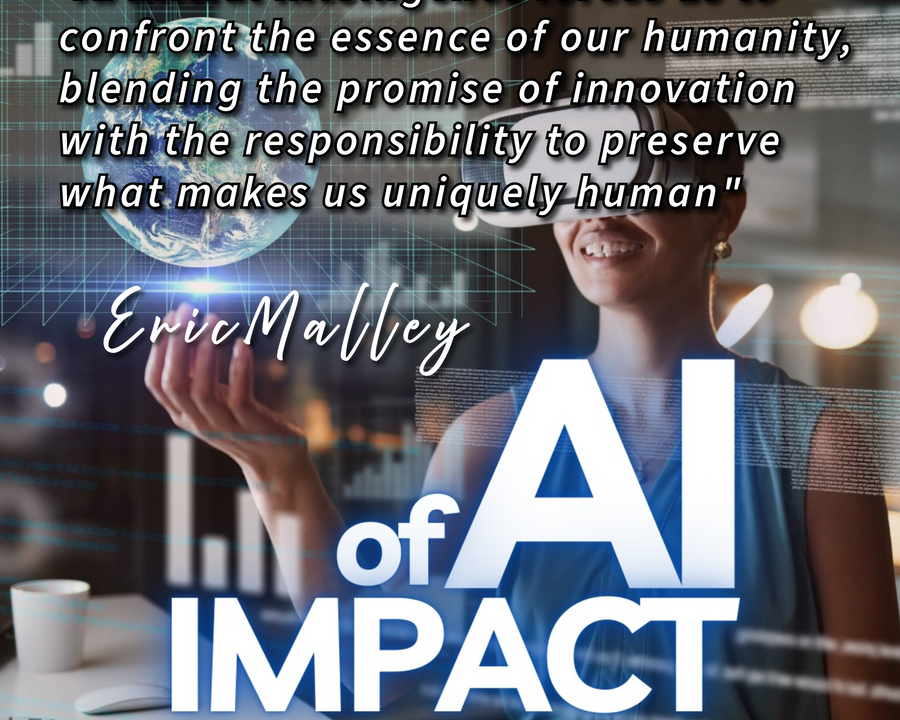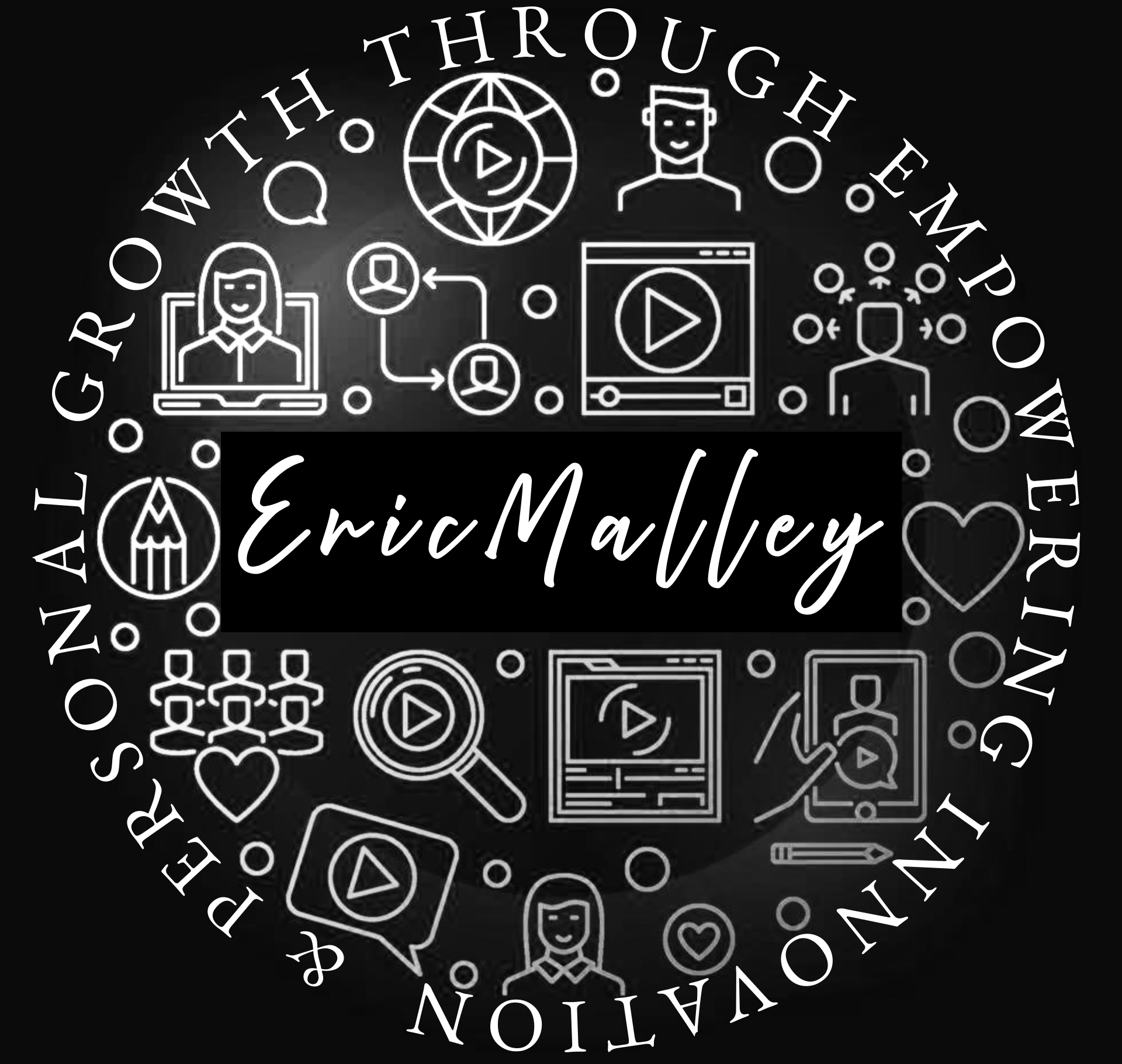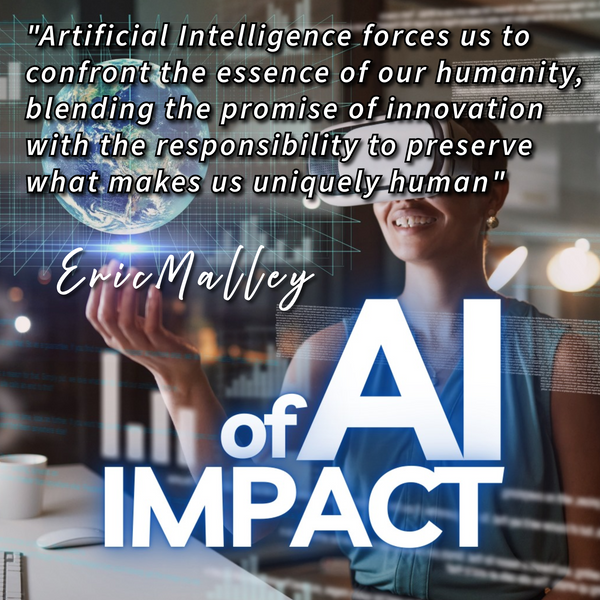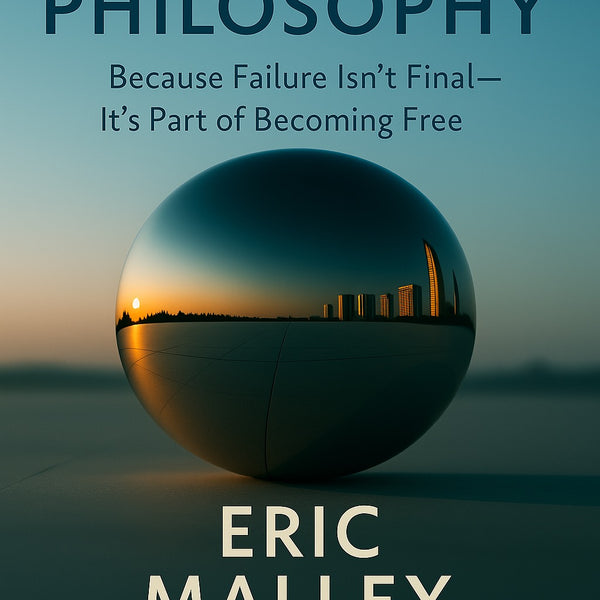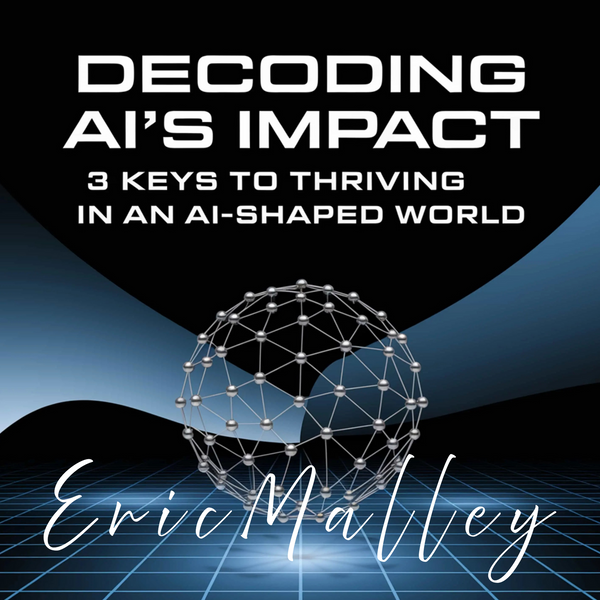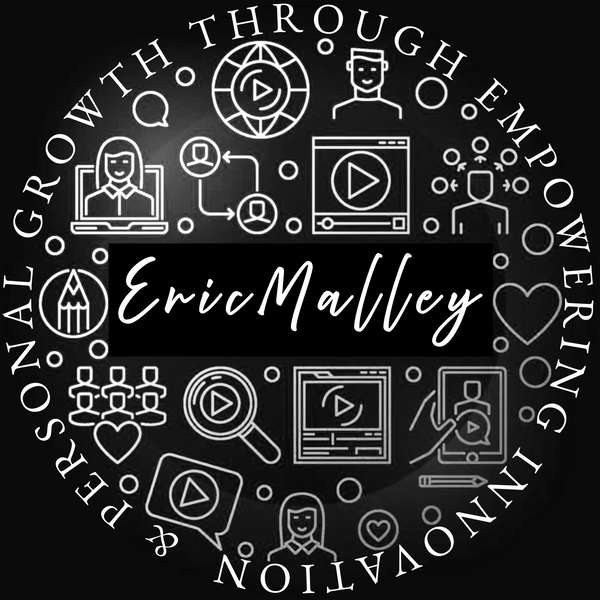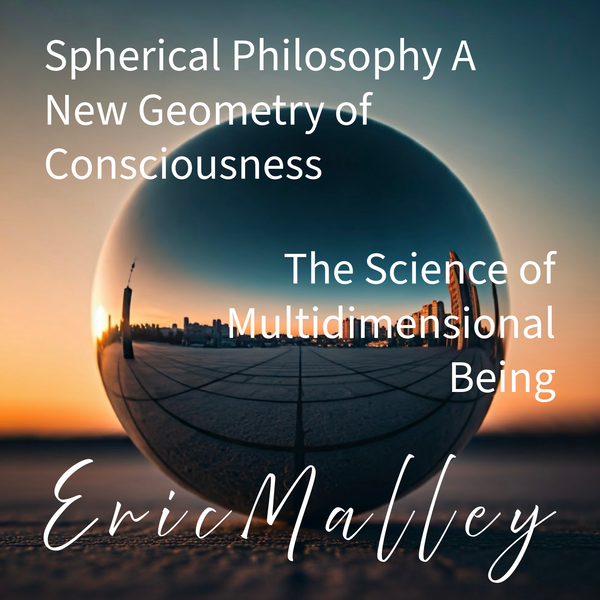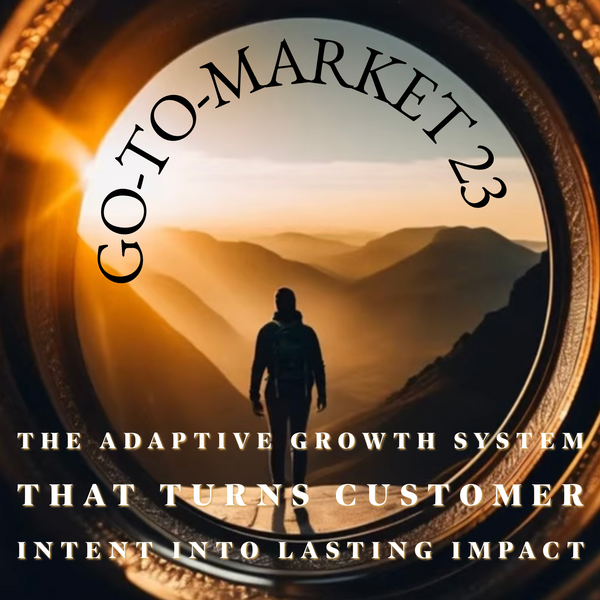Decoding AI's Impact: 3 Keys to Thriving in an AI-Shaped World (Insights from Musk, Altman and Ng) By Eric Malley
Expert Insights for Thriving in the AI Revolution: Practical Strategies for Individuals, Families, and Professionals | Case Study Format
Introduction: The Spherical Lens of AI’s Impact
Artificial Intelligence (AI) has evolved from a tool into a societal architect, reshaping how humans perceive themselves, interact with families, and navigate work. By applying Eric Malley’s Spherical Philosophy™ a framework emphasizing empathy, compassion, determination, and motivation this paper explores AI’s interconnected impact across three domains: individual identity, family dynamics, and professional life. As Malley asserts, “The future belongs to those who innovate with the community, not against it” (Malley, 2025).
I. The Individual: Navigating Self-Perception in the Age of AI
AI is increasingly influencing how we see ourselves. Platforms use algorithms to shape our preferences, subtly guiding our self-perception. It's essential to maintain our determination for self-directed growth and not let machines dictate our identity. How can we ensure that AI enhances our individuality rather than diminishes it?
Key Dynamics:
1. Self-Perception: AI generated avatars and mental health apps blur lines between virtual and real identities. Altman notes that while AI can validate emotions, it “cannot replicate human drama or belonging” (Altman, 2024).
2. Autonomy: Delegating decisions to AI risks eroding critical thinking. Elon Musk cautions, “If AI does everything, what will humans do? We need to redefine purpose” (Musk, 2023).
3. Social Dynamics: AI fosters insular networks that polarize discourse. Andrew Ng’s call for adaptability aligns with Malley’s empathy, urging individuals to “learn alongside AI, not defer to it” (Ng, 2024).
Spherical Insight:
Malley’s motivation principle the drive to innovate ethically encourages tools like AI tutors that adapt to learning styles while preserving human mentorship.
II. The Family: Cultivating Compassionate Bonds Amidst AI Integration
AI is reshaping family life by automating tasks and freeing time for bonding. However, it's crucial to ensure that face-to-face interactions and shared activities remain a priority to strengthen family relationships. For example, rather than relying solely on AI for meal planning, involving the family in communal cooking can enhance emotional connections. What steps are you taking to ensure AI enhances, not detracts, your family's wellbeing?
Key Dynamics:
1. Household Management: AI powered devices reduce cognitive load but demand boundaries. Malley’s compassion principle prioritizes shared activities (e.g., communal cooking) over efficiency.
2. Parenting: AI driven educational tools personalize learning but risk emotional detachment. For example, mental health chatbots should supplement not replace caregivers.
3. Privacy: Shared devices blur work family boundaries. A smart speaker storing a child’s voice commands for workplace analytics underscores the need for transparency (Malley, 2025).
Case Study: Scandinavian eldercare uses AI for predictive health monitoring while ensuring human caregivers remain central a model aligning with Malley’s humanistic dynamics.
III. Work: Fostering Ethical Innovation Through Human Centered AI
AI is revolutionizing workplaces through predictive analytics and automation, potentially boosting productivity by 30% to 50% in machinery and equipment manufacturing. For instance, AI driven predictive maintenance can significantly cut unexpected downtimes, keeping production lines running more efficiently. However, job displacement is a growing concern; McKinsey estimates that AI could force 12 million people to switch jobs by 2030. To ensure equity, reskilling programs and hybrid roles, like AI Augmented Creative Directors, are crucial. What steps are you taking to integrate ethical AI practices in your organization?
Key Dynamics:
1. Efficiency vs. Equity: Amazon's biased hiring algorithm (2018) highlights the risks of unchecked AI. Malley’s determination advocates reskilling programs and hybrid roles like AI Augmented Creative Directors.
2. Creativity: Tools like DALLE brainstorm ideas, but human refinement preserves ingenuity. Ng stresses AI should “augment creativity, not replace it” (Ng, 2024).
3. Security: AI Security Specialists combat rising cyber threats, ensuring data integrity a reflection of Malley’s accountability.
Case Study: Japan’s AI Powered Workforce Reskilling Initiative
Japan has been proactive in addressing the skills gap and potential job displacement caused by AI and automation. The government has committed to investing $7.5 billion over five years in reskilling resources to drive reskilling. These initiatives aim to fill an estimated 11 to 12 million new positions needed by 2030. These programs focus on digital skills and AI proficiency. These reskilling programs underscore resilience in Spherical Philosophy™.
IV. Overlaps: Harmonizing AI Integration Across Life Domains
AI is blurring boundaries as shared devices sync work and family schedules, but notifications can intrude on dinners. Data breaches, such as those at Capital One and T-Mobile, highlight the privacy risks associated with AI driven systems. Therefore, it's essential to establish ethical frameworks that prioritize human centric design, boundary protocols, and regulatory safeguards.
Case Study Comparisons: Scandinavian Eldercare vs. AI Adoption in Education
Scandinavian Eldercare: In Scandinavian countries like Sweden, AI is used in eldercare to address demographic challenges related to aging populations. Welfare technologies such as sensor systems and digital communication platforms are deployed to support independent living and enhance the quality of care. For example, smart sensors monitor elderly residents' movements and health data, enabling timely responses to emergencies and reducing the workload of caregivers. A study of Swedish elder care personnel found that they were generally very positive toward new technologies.
AI Adoption in Education: AI is transforming education through personalized learning platforms and intelligent tutoring systems. These technologies analyze student performance data to tailor educational content and provide targeted support. However, the integration of AI in education raises concerns about data privacy, algorithmic bias, and the potential for overreliance on technology at the expense of human interaction. Unlike the eldercare sector, where AI is often seen as a tool to enhance human care, the education sector faces greater scrutiny regarding the potential displacement of teachers and the impact on student development.
Ethical Frameworks:
1. Human When it comes to your checking account Centric Design:
· Actionable Steps:
· Prioritize Usability: Design AI systems to be user friendly, simplifying tasks and enhancing the user experience.
· Ensure Transparency: Disclose the criteria and algorithms used in AI systems.
· Mitigate Bias: Regularly audit AI models for biases and involve a diverse team in the design process.
2. Boundary Protocols:
· Actionable Steps:
· Implement "Do Not Disturb" Modes: Schedule "do not disturb" hours to mute work related notifications during personal time.
· Use Separate Accounts and Devices: Keep work and personal activities separate by using different accounts and devices.
· Timeboxing: Allocate specific time blocks for work and personal activities to maintain a structured work Do you better feels that checking makes your life easier I’m learning to be finance and smarter or person and more convenient for picture things that you do portfolio check the WD 3 check without digital models and debit card controls in walls and if you’re there they bring life balance.
3. Regulatory Safeguards:
· Actionable Steps:
· Compliance with AI Regulations: Adhere to AI regulations, such as the EU AI Act, which mandates consent for data handling.
· Data Anonymization: Use techniques to anonymize sensitive data while maintaining its utility, protecting privacy while still leveraging data for analysis and improvements.
· Consent Mechanisms: Ensure clear and informed consent for data usage, especially when AI systems collect and process personal data.
Voices Shaping AI’s Future
- Andrew Ng (2024): “AI is the new electricity—ubiquitous, transformative, and best when invisible.”
- Elon Musk: Advocates for universal basic income, reflecting compassion for workers displaced by AI.
- Eric Malley (2025): “Artificial Intelligence forces us to confront the essence of our humanity, blending the promise of innovation with the responsibility to preserve what makes us uniquely human.”
- Sam Altman (2024): “AI will create phenomenal wealth, but we need systems to redistribute it.”
Conclusion: A Humanistic Compass for AI
AI's interconnected impact on our identities, families, and work lives demands ethical stewardship. By applying Malley's Spherical Philosophy™ with empathy in design, compassion in policy, and determination in innovation we can ensure that AI enhances rather than diminishes our humanity. Real-world examples, like the city of Trento being fined for AI violations, highlight the importance of regulatory accountability. Tools like Microsoft Copilot demonstrate how AI can balance efficiency and compassion by freeing up time for what truly matters: connecting with loved ones. As leaders like Musk, Altman, and Ng remind us, our goal should be to create a future where AI amplifies wellbeing and upholds ethical standards, enriching our interconnected world
Eric Malley | Editor-in-Chief | LinkedIn
